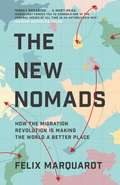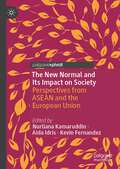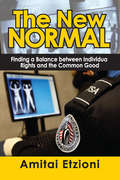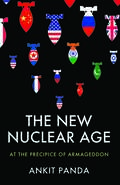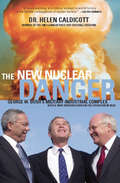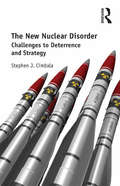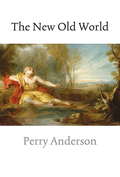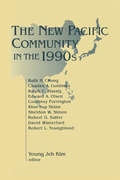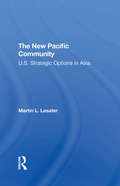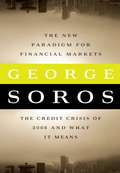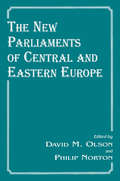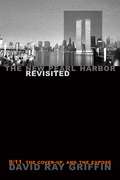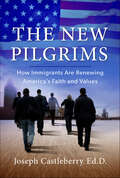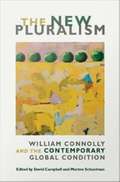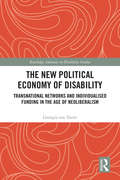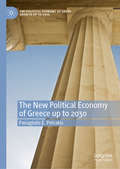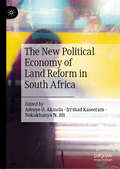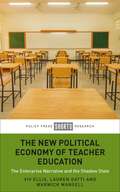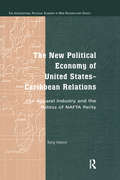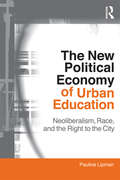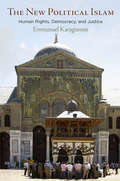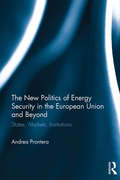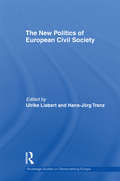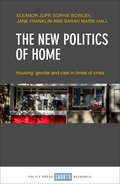- Table View
- List View
The New Nomads: How the Migration Revolution is Making the World a Better Place
by Felix MarquardtWe have lost the plot when it comes to migration. In our collective consciousness, the term 'migration' conjures up images of hordes of refugees fleeing 'their' country, escaping on rafts and coming to invade 'ours'. When we think of migration, we think of (largely unwanted) immigration and its ills. We've got it all wrong. Far from being abnormal, the act of going in search of a better life is at the core of the human experience. And now a new kind of nomad is emerging. What used to be a movement largely from east to west, south to north, developing to developed country is becoming more of a multilateral phenomenon with each passing day. Young people from everywhere are moving everywhere. Or rather, they are moving to where they expect to improve their lives and are turning the world into a beauty contest of cities and regions and companies vying to attract them. They are doing so because movement has become a key to their emancipation. After centuries of becoming sedentary, the future of humanity and the key to its enlightenment in the 21st century lies in re-embracing nomadism. Migration fosters the qualities that will allow our children to flourish and succeed. Our times require more migration, not less. Part memoir, part generational manifesto, The New Nomad is both the chronicle of this revolution and a call to embrace it.
The New Normal and Its Impact on Society: Perspectives from ASEAN and the European Union
by Aida Idris Nurliana Kamaruddin Kevin FernandezThis book focuses on the socio-cultural changes and issues experienced in ASEAN and the European Union in the post-pandemic world. In doing so, chapters discuss the social impact of specific themes such as changing work ethics, migration, and cyber security, which have shifted the cultural and economic landscapes of Southeast Asia and Europe. The book will be useful for policymakers, journalists, students, and those interested in discussions of regionalism, and the effects of Covid-19 on social policies ranging from the individual, domestic laws, to national and supranational policies.
The New Normal: Finding a Balance Between Individual Rights and the Common Good
by Amitai EtzioniAmitai Etzioni argues that societies must find a way to balance individual rights and the common good. This point of balance may change as new technologies develop, the natural and international environments change, and new social forces arise. Some believe the United States may be unduly short-changing individual rights that need to be better protected. Specifically, should the press be granted more protection? Or should its ability to publish state secrets be limited? Should surveillance of Americans and others be curtailed? Should American terrorists be treated differently from others? How one answers these questions, Etzioni shows, invites a larger fundamental question: Where is the proper point of balance between rights and security? Etzioni implements the social philosophy, "liberal communitarianism." Its key assumptions are that neither individual rights nor the common good should be privileged, that both are core values, and that a balance is necessary between them. Etzioni argues that we need to find a new balance between our desire for more goods, services, and affluence, particularly because economic growth may continue to be slow and jobs anemic. The key question is what makes a good life, especially for those whose basic needs are sated.
The New Nuclear Age: At the Precipice of Armageddon
by Ankit PandaThe world is entering a new nuclear age. Nuclear weapons are returning to the fore of international statecraft in ways unseen since the Cold War. With major powers like Russia issuing threats of nuclear strikes, China and North Korea continuing to grow their arsenals, and new prospects for proliferation from the Middle East to East Asia, the world has been thrust into a new era of heightened nuclear risk. In this incisive book, international security expert Ankit Panda explores the enduring and emerging factors that are contributing to this new nuclear age. From strained great power ties to complex multipolar dynamics and the precipitous decline of arms control, he shows how our coexistence with the bomb is becoming more complicated and perilous. The prospect of nuclear escalation is again shaping how political decision-makers and military establishments around the world think and act. But unlike the peril of the Cold War, a greater number of nuclear players and a plethora of new technologies, including AI and exotic new weapons, make the search for stability far from straightforward. Managing the risks of a nuclear confrontation, he argues, will require new urgency and thinking to pull us back from the precipice of global catastrophe.
The New Nuclear Danger: George W. Bush's Military-Industrial Complex
by Helen CaldicottA global leader of the antinuclear movement delivers &“a meticulous, urgent, and shocking report&” on US weapons policy and the imminent dangers it poses (Booklist). First published in the wake of the September 11 attacks in 2001, The New Nuclear Danger sounded the alarm against a neoconservative foreign policy dictated by weapons manufacturers. This revised and updated edition includes a new introduction that outlines the costs of Operation Iraqi Freedom, details the companies profiting from the war and subsequent reconstruction, and chronicles the rampant conflicts of interest among members of the Bush administration who also had a financial stake in weapons manufacturing. Named one of the Most Influential Women of the 20th Century by the Smithsonian and nominated for the Nobel Peace Prize for her antinuclear activism, Dr. Helen Caldicott&’s expert assessment of US nuclear and military policy is essential reading for anyone who wants to understand the precarious state of the world. After eight printings in the original edition, The New Nuclear Danger remains a singularly persuasive argument for a new approach to foreign policy and a new path toward arms reduction. &“A timely warning, at a critical moment in world history, of the horrible consequences of nuclear warfare.&” —Walter Cronkite
The New Nuclear Disorder: Challenges to Deterrence and Strategy (Routledge Global Security Studies)
by Stephen J. CimbalaIn the twenty-first century, the United States confronts an international system of great complexity and shifting security challenges. Among these challenges are those posed by nuclear weapons. Instead of becoming obsolete or being marginalized by the end of the Cold War and the demise of the Soviet Union, nuclear weapons have become more important to present and future international stability and peace but the relationship is paradoxical. On one hand, the spread of nuclear weapons to additional states with unsettled grievances or hegemonic ambitions threatens to destabilize local balances of power and set off regional arms races. In addition, the possible acquisition by terrorists of nuclear weapons or fissile materials creates a threat that may be ’beyond deterrence’ according to hitherto accepted concepts. On the other hand, nuclear weapons in the hands of other states can contribute to stable deterrence and help to prevent nuclear proliferation to international miscreants. Certain cases loom large in the short run that highlight this book’s relevance, including the possible acquisition and deployment of nuclear weapons by Iran and the continuing tensions created by North Korea’s nuclear arsenal. The Obama ’pivot’ of national security and defense emphasis to Asia reflects not only the growing economic importance of that region, but also the growing number of security dilemmas in a region that is already awash in nuclear forces. The management of nuclear crises and even the possible need to terminate nuclear wars before they expand beyond a single region are among the possible challenges facing future U.S. and allied policy makers and military leaders.
The New Odyssey: The Story of the Twenty-First Century Refugee Crisis
by Patrick KingsleyIn the humane tradition of Katherine Boo’s Behind the Beautiful Forevers comes a searing account of the international refugee crisis. On the day of his son’s fourteenth birthday, Hashem al-Souki lay somewhere in the Mediterranean, crammed in a wooden dinghy. His family was relatively safe—at least for the time being—in Egypt, where they had only just settled after fleeing their war-torn Damascus home three years prior. Traversing these unforgiving waters and the treacherous terrain that would follow was worth the slim chance of securing a safe home for his children in Sweden. If he failed, at least he would fail alone.? Hashem’s story is tragically common, as desperate victims continue to embark on deadly journeys in search of freedom. Tracking the harrowing experiences of these brave refugees, The New Odyssey finally illuminates the shadowy networks that have facilitated the largest forced exodus since the end of World War II. The Guardian’s first-ever migration correspondent, Patrick Kingsley has traveled through seventeen countries to put an indelible face on this overwhelming disaster. Embedding himself alongside the refugees, Kingsley reenacts their flight with hundreds of people across the choppy Mediterranean in the hopes of better understanding who helps or hinders their path to salvation. From the starving migrants who push through sandstorms with children strapped to their backs to the exploitive criminals who prey on them, from the smugglers who dangerously stretch the limits of their cargo space to the volunteers who uproot their own lives to hand out water bottles—what emerges is a kaleidoscope of humanity in the wake of tragedy. By simultaneously tracing the narrative of Hashem, who endured the trek not once but twice, Kingsley memorably creates a compassionate, visceral portrait of the mass migration in both its epic scope and its heartbreaking specificity. Exposing the realities of this modern-day odyssey as well as the moral shortcomings evident in our own indifference, the result is a crucial call to arms and an unprecedented exploration of a world we too often choose not to know.
The New Old World
by Perry AndersonThe New Old World looks at the history of the European Union, the core continental countries within it, and the issue of its further expansion into Asia. It opens with a consideration of the origins and outcomes of European integration since the Second World War, and how today's EU has been theorized across a range of contemporary disciplines. It then moves to more detailed accounts of political and cultural developments in the three principal states of the original Common Market--France, Germany and Italy. A third section explores the interrelated histories of Cyprus and Turkey that pose a leading geopolitical challenge to the Community. The book ends by tracing ideas of European unity from the Enlightenment to the present, and their bearing on the future of the Union. The New Old World offers a critical portrait of a continent now increasingly hailed as a moral and political example to the world at large.
The New Pacific Community in the 1990s (Research Project / Center For Asia Pacific Studies, Pacific #Vol. 3)
by Young Jeh KimWith the end of the Cold War and the subsequent new regional alignments, American foreign policy and influence in the Asia-Pacific region face a major turning point. In this book ten North American specialists from various disciplines reconceptualize the forces shaping the New Pacific Community: international politics as a by-product of peaceful cooperation; the changing role of the military; the political economy as a determinant of human rights; environmental and demographic issues; and culture as an evolutionary and dynamic phenomenon in the lives of new immigrants as they make their way in American society.
The New Pacific Community: U.s. Strategic Options In Asia
by Martin L LasaterAs the political and economic landscape in the Asian Pacific continues to shift, the United States must re-evaluate its strategy toward the region. In his book, Martin Lasater explores U.S. interests in Asia, considering strategies for attaining U.S. goals in the post-containment era. Citing numerous strategic options for the United States, Lasater recommends a strategy of integration as being best suited for the region through the end of the century.
The New Paradigm for Financial Markets: The Credit Crisis of 2008 and What It Means
by George SorosIn the midst of the most serious financial upheaval since the Great Depression, legendary financier George Soros explores the origins of the crisis and its implications for the future. Soros, whose breadth of experience in financial markets is unrivaled, places the current crisis in the context of decades of study of how individuals and institutions handle the boom and bust cycles that now dominate global economic activity. OC This is the worst financial crisis since the 1930s, OCO writes Soros in characterizing the scale of financial distress spreading across Wall Street and other financial centers around the world. In a concise essay that combines practical insight with philosophical depth, Soros makes an invaluable contribution to our understanding of the great credit crisis and its implications for our nation and the world. "
The New Parliaments of Central and Eastern Europe (The\library Of Legislative Studies)
by Philip Norton David M. OlsonWhat role have parliaments played in the dramatic changes occurring in Eastern and Central Europe? Adopting a common research framework, the contributors analyse in detail the role and operations of parliaments in ten of the new democracies. They focus on what determines their capacity to have some impact on public policy. They identify the significance of parliaments operating in often hybrid systems of government, with the relationship between the executive and legislature not well defined, and with an absence of constraining influence that typify western political systems.
The New Pearl Harbor Revisited: 9/11, the Cover-Up, and the Exposé
by David Ray GriffinIn 2004, David Ray Griffin published The New Pearl Harbor: Disturbing Questions about the Bush Administration and 9/11. Translated into several languages, it helped spark a worldwide movement demanding "9/11 truth." Even as it became increasingly outdated, it continued to be widely cited as the best introduction to the issues.Griffin has now written The New Pearl Harbor Revisited, which provides a chapter-by-chapter updating of the information provided in that earlier book. It shows that the case against the official account constructed by independent researchers - who now include architects, engineers, physicists, pilots, politicians, and former military officers - is far stronger than it was in 2004, leaving no doubt that 9/11 was a false-flag operation, designed to give the Bush-Cheney administration a pretext to attack oil-rich Muslim nations.Taken together, these two books provide everything one needs to make an informed decision about 9/11 - whether one is a journalist, a political leader, a religious leader, or an ordinary citizen concerned about truth, democracy, and the rule of law.
The New Pilgrims: How Immigrants are Renewing America's Faith and Values
by Joseph CastleberryWe often assume America needs to help immigrants, but in The New Pilgrims, Joseph Castleberry opens our eyes to how the opposite is true, and how we can join in one of the greatest spiritual movements this country has ever seen.In the midst of an apparent religious decline in the United States, many Americans are looking for solutions to this dilemma. Our hope lies with Christian immigrants, who bring to our churches powerful testimonies of faith from cultures all over the world. As the "new pilgrims" settle into their lives here, they are taking the American church by storm and helping rebuild America's conservative foundations.It's time to acknowledge this exciting time of spiritual renewal and embrace the political and relational choices that will once again establish America as the "shining city on a hill" we all want it to be.
The New Pluralism: William Connolly and the Contemporary Global Condition
by David Campbell Morton SchoolmanWilliam Connolly, one of the best-known and most important political theorists writing today, is a principal architect of the "new pluralism. " In this volume, leading thinkers in contemporary political theory and international relations provide a comprehensive investigation of the new pluralism, Connolly's contributions to it, and its influence on the fields of political theory and international relations. Together they trace the evolution of Connolly's ideas, illuminating his challenges to the "old," conventional pluralist theory that dominated American and British political science and sociology in the second half of the twentieth century. The contributors show how Connolly has continually revised his ideas about pluralism to take into account radical changes in global politics, incorporate new theories of cognition, and reflect on the centrality of religion in political conflict. They engage his arguments for an agonistic democracy in which all fundamentalisms become the objects of politicization, so that differences are not just tolerated but are productive of debate and the creative source of a politics of becoming. They also explore the implications of his work, often challenging his views to widen the reach of even his most recently developed theories. Connolly's new pluralism will provoke all citizens who refuse to subordinate their thinking to the regimes in which they reside, to religious authorities tied to the state, or to corporate interests tied to either. The New Pluralism concludes with an interview with Connolly in which he reflects on the evolution of his ideas and expands on his current work. Contributors: Roland Bleiker, Wendy Brown, David Campbell, William Connolly, James Der Derian, Thomas L. Dumm, Kathy E. Ferguson, Bonnie Honig, George Kateb, Morton Schoolman Michael J. Shapiro, Stephen K. White
The New Political Economy of Disability: Transnational Networks and Individualised Funding in the Age of Neoliberalism (Routledge Advances in Disability Studies)
by Georgia van ToornThis book addresses the ways in which individualised, market-based models of disability support provision have been mobilised in and across different countries through cross-national investigation of individualised funding (IF) as an object of neoliberal policy mobility. Combining rich theoretical and interdisciplinary perspectives with extensive empirical research, the book provides a timely examination of the policy processes and mechanisms driving the spread of IF amongst countries at the forefront of disability policy reform. It is argued that IF’s mobility is not attributable to neoliberalism alone, but to the complex intersections between neoliberal and emancipatory agendas, and to the transnational networks that have blended the two agendas in new ways in different institutional contexts. The book shows how disability rights struggles have synchronised with neoliberal agendas, which explains IF’s propensity to move and mutate between different jurisdictions. Featuring first-hand accounts of the activists and advocates engaged in these struggles, the book illuminates the consequences and risks of the dangerous liaisons and political trade-offs that seemed necessary to get individualised funding on the policy agenda for disabled people. It will be of interest to all scholars and students working in disability studies, social policy, sociology and political science more generally.
The New Political Economy of Greece up to 2030 (The Political Economy of Greek Growth up to 2030)
by Panagiotis E. PetrakisThis book not only analyzes and evaluates the current state of economic growth and development in Greece, but also investigates the potential for growth and development in the mid- to long-term horizon. This book presents a unique theoretical framework drawing on structural elements of political economy such as institutions, cultural background, and the complex nature of politics and political power, as well as neoclassical economics and behavioral economics. The first part of the book introduces readers to some key concepts of normative analysis from a theoretical and methodological perspective, presents the relation between theory and policy, placing the Greek economy within the framework of the Eurozone, and provides the political economy of integrated growth and development in Greek economy. The second part of the book describes the current condition of Greece in the global economy and attempts to detect the major social, economic and political trends that will prevail in the Greek society, while pointing the challenges that the Greek economy will face across the coming decade by taking into account the Covid-19 crisis. The third part of the book provides an overview of growth and development theory as specifically applied to Greece, focusing on the endogenous forces driving the economy, and portrays how the 2008 financial crisis and the crisis of Covid-19 transformed the framework of Greek growth and development policy, to the ground of a new consolidated situation of low growth, low inflation and low employment in the case of Greek economy.
The New Political Economy of Land Reform in South Africa
by Adeoye O. Akinola Irrshad Kaseeram Nokukhanya N. JiliThis book analyzes the new political economy of land reform in South Africa. It takes a holistic approach to understand South Africa’s land reform, assesses the current policy gaps, and suggests ways of filling them. Due to its cross-disciplinary approach, the book will appeal to a broad audience, and will benefit readers from the fields of policy reform, administration, law, political science, political economics, agricultural economics, global politics, resource studies and development studies.
The New Political Economy of Teacher Education: The Enterprise Narrative and the Shadow State
by Viv Ellis Lauren Gatti Warwick MansellViv Ellis, Lauren Gatti and Warwick Mansell present a unique and international analysis of teacher education policy. Adopting a political economy perspective, this distinctive text provides a comparative analysis of three contrasting welfare state models – the US, England and Norway – following the 2008 Global Financial Crisis (GFC). Arguing that a new political economy of teacher education began to emerge in the decade following the GFC, the authors explore key concepts in education privatisation and examine the increasingly important role of shadow state enterprises in some jurisdictions. This topical text demonstrates the potential of a political economy approach when analysing education policies regarding pre-service teacher education and continuing professional development.
The New Political Economy of United States-Caribbean Relations: The Apparel Industry and the Politics of NAFTA Parity (The International Political Economy of New Regionalisms Series)
by Tony HeronThis informative book brings a fresh perspective to the continuing debate about globalization and regionalization in the global political economy and the ways in which state policy, in both developed and developing countries, shapes the patterns of economic integration and competitiveness among participating countries and firms. Focusing on the United States and the Caribbean, the book traces the advent and subsequent growth of production sharing between outsourcing textile, apparel firms and assembly operations located in specially designated export processing zones. This case study allows a number of broad conclusions to be reached regarding the political economy of production sharing that will inform the work of those in the fields of international and comparative political economy, development studies and business and management.
The New Political Economy of Urban Education: Neoliberalism, Race, and the Right to the City (Critical Social Thought)
by Pauline LipmanUrban education and its contexts have changed in powerful ways. Old paradigms are being eclipsed by global forces of privatization and markets and new articulations of race, class, and urban space. These factors and more set the stage for Pauline Lipman's insightful analysis of the relationship between education policy and the neoliberal economic, political, and ideological processes that are reshaping cities in the United States and around the globe. Using Chicago as a case study of the interconnectedness of neoliberal urban policies on housing, economic development, race, and education, Lipman explores larger implications for equity, justice, and "the right to the city". She draws on scholarship in critical geography, urban sociology and anthropology, education policy, and critical analyses of race. Her synthesis of these lenses gives added weight to her critical appraisal and hope for the future, offering a significant contribution to current arguments about urban schooling and how we think about relations between neoliberal education reforms and the transformation of cities. By examining the cultural politics of why and how these relationships resonate with people's lived experience, Lipman pushes the analysis one step further toward a new educational and social paradigm rooted in radical political and economic democracy.
The New Political Islam: Human Rights, Democracy, and Justice (Haney Foundation Series)
by Emmanuel KaragiannisIslamist political parties and groups are on the rise throughout the Muslim world and in Muslim communities in the West. Owing largely to the threat of terrorism, political Islam is often portrayed as a monolithic movement embodying fundamentalism and theocracy, an image magnified by the rise of populism and xenophobia in the United States and Europe. Reality, however, is far more complicated. Political Islam has evolved considerably since its spectacular rise decades ago, and today it features divergent viewpoints and contributes to discrete but simultaneous developments worldwide. This is a new political Islam, more global in scope but increasingly local in action.Emmanuel Karagiannis offers a sophisticated analysis of the different manifestations of contemporary Islamism. In a context of global economic and social changes, he finds local manifestations of Islamism are becoming both more prevalent and more diverse. Many Islamists turn to activism, still more participate formally in the democratic process, and some, in far fewer numbers, advocate violence—a wide range of political persuasions and tactics that reflects real and perceived political, cultural, and identity differences.Synthesizing prodigious research and integrating insights from the globalization debate and the literature on social movements, The New Political Islam seeks to explain the processes and factors leading to distinctive fusions of "the global" and "the local" across the landscape of contemporary political Islam. Examining converts to Islam in Europe, nonviolent Islamists with global reach, Islamist parties in Turkey, Egypt, and Tunisia, and militant Shia and Sunni groups in Syria and Iraq, Karagiannis demonstrates that Islamists have embraced ideas and practices from the global marketplace and have attempted to implement them locally. He looks closely at the ways in which Islamist activists, politicians, and militants have utilized the language of human rights, democracy, and justice to gain influence and popular support and to contend for power.
The New Politics of Energy Security in the European Union and Beyond: States, Markets, Institutions
by Andrea PronteraCombining theoretical reflections and empirical insights from paradigmatic case studies in the area of external energy governance, pipeline politics, Liquefied Natural Gas development and offshore petroleum policy and politics, this ground-breaking study demonstrates that a distinctive and new politics of energy security is definitively emerging in the European Union. Innovative not only in regard to the case studies presented (which include the Caspian region, the Baltic, Mediterrean countries, Central Asia and EU-Russia relations), but also in regard to the analytical framework adopted – an International Political Economy approach informed by an historical institutional perspective – the book challenges the common view of the ‘de-politicisation’ of energy security supported by the mainstream market approach and the power politics and ‘zero-sum game’ view supported by the geopolitical perspective. This book places the study of EU energy politics in the broader, evolving context of global energy markets and explores the complex interactions between EU and national political dynamics and between energy security and environmental concerns at the local level.
The New Politics of European Civil Society (Routledge Studies on Democratising Europe)
by Ulrike Liebert Hans-Jörg TrenzOver the past two decades, civil society has played a pivotal role in Europe, from the demise of Communist rule to the reunification of Europe, followed by the expansion of the single market to the reconstitution of democracy in the enlarged European Union. European civil society has emerged as a social space between EU governance and the citizens of the member states, populated by non-state agents claiming to represent, speak for or participate on behalf of the most varied social constituencies in EU decision making. This book consolidates European civil society research by re-viewing its conceptual, normative and empirical-analytical foundations. With contributors from political science to sociology to law, it captures the evolving practices of European civil society that stretch across the national (local), the European and the global realm. Developing an analytical framework that highlights the interplay between civil society building and polity building from above as well as from below, within the legal and institutional framework of the EU, they examine whether and how civil society can contribute to making democracy work in normative democratic theoretical perspectives. This book will be of interest to students and scholars of civil society, European politics, political science and sociology.
The New Politics of Home: Housing, Gender and Care in Times of Crisis
by Eleanor Jupp Sophie BowlbyHome and care are central aspects of everyday, personal lives, yet they are also shaped by political and economic change. Within a context of austerity, economic restructuring, worsening inequality and resource rationing, policy around and experience of these key areas is shifting. Taking an interdisciplinary and feminist perspective, this book illustrates how economic and political changes affect everyday lives for many families and households in the UK. Setting out both new empirical material and new conceptual terrain, the authors draw on approaches from human geography, social policy, feminist and political theory to explore issues of home and care in times of crisis.
